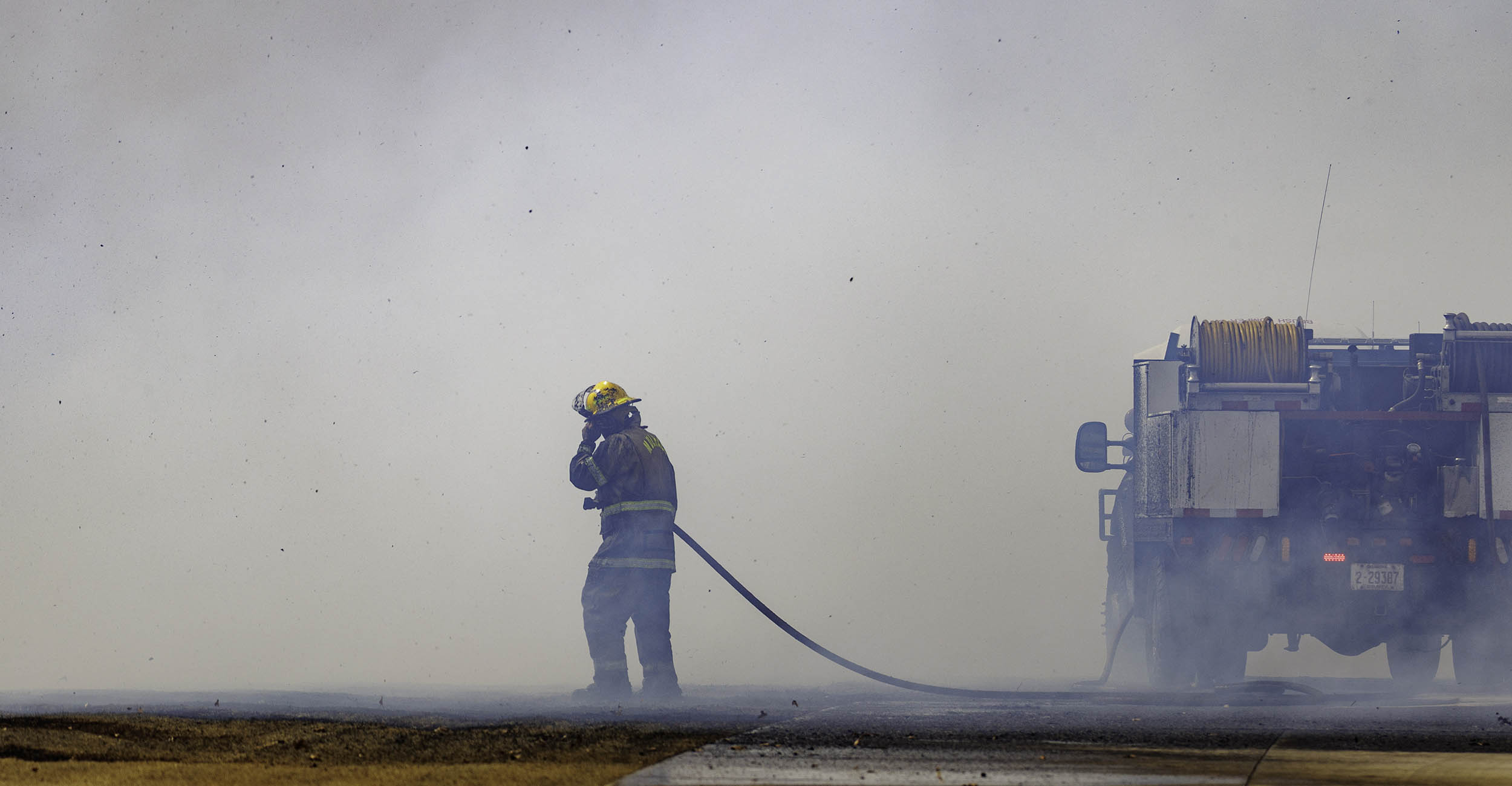
Gather paperwork and take video before disaster strikes
Monday, April 7, 2025
Media Contact: Gail Ellis | Editorial Communications Coordinator | 405-744-9152 | gail.ellis@okstate.edu
Organizing financial documents and safely storing them before a fire or tornado can prevent additional stress and confusion following the disaster.
Oklahomans affected by wildfires know firsthand how it feels to watch their home, apartment or property burn and then ask, “What do I do now?”
“Don’t make any major decisions during the first couple of days,” said Andrine Shufran, entomology and plant pathology specialist for Oklahoma State University Extension. “You don’t realize how hard it becomes to make simple decisions, much less important ones.”
Shufran and her husband lost their home in the wildfires that swept through the west side of Stillwater on March 14. As they gathered with neighbors on the street that afternoon, fire and smoke approached from all sides as fire officials drove by to notify the neighborhood it had 30 minutes to evacuate.
“We didn’t take anything but my purse, prescriptions and the animals,” Shufran said. “When we came back the next morning, there was nothing left.”
Their home burned to the ground, and the fire-proof gun safe where they stored important papers and documents buckled under intense heat that raged for hours. When the safe was finally opened days later, its contents had turned to dust.
After ensuring everyone’s safety, Mengya Wang, OSU Extension personal finance specialist, said a disaster victim’s first call should be to their insurance agent to start a claim as soon as possible. Ask what the policy covers, confirm the deductible and get an estimate on how long the claim process will take.
“Everybody’s situation is different, but be proactive and ask the questions,” Wang said. “Request a copy of your policy to review and read it in detail. All insurance companies are obligated to provide a free copy within 30 days.”
A homeowner with a mortgage can also notify their bank of the loss, but knowing the deductible, reimbursement limit and time frame, and other details of a homeowner’s policy is the priority.
Once immediate needs like food, shelter and essentials are secured, disaster victims begin the painstaking process of recovering property, but Wang said beware of scammers.
“A lot of contractors and others posing as restoration specialists may offer cleanup services or promise to fast-track your insurance claim, but it’s better to check with other people, your insurance company and professionals in the area,” she said. “Fake charities will ask you to donate.”
Wang advises verifying a contractor’s professional license before signing any contract. Don’t rush the agreement, ask questions and protect personal information.
“If anyone asks for your social security number, bank details or other sensitive information to speed up collecting insurance claims or government financial assistance, verify it first,” Wang said. “Most official agencies like the government won’t ask for personal info by phone or text; just know those are scammers.”
Before Oklahoma’s unpredictable tornadoes, floods and wildfires, Wang said the following emergency preparations expedite the recovery process:
Financial documents in the go-bag
In a go-bag of food, water, emergency cash, clothes and medications, include a copy of the home insurance policy, bank passwords and account numbers, wills, deeds, social security cards, power of attorney documentation and other critical records. Another option is to secure these items in a safe deposit box at the bank.
“We had a go-bag with minor things like water and snacks, but we should’ve kept our important papers in a safe deposit box away from the house,” Shufran said. “The fireproof stuff in your house is not fireproof in Oklahoma. Afterward, you are not in any way, shape or form – mentally, emotionally or physically – prepared to spend days on the phone trying to recover everything.”
Emergency savings
Work with a financial advisor to establish 3-6 months of emergency savings while tracking income and expenses. A financial advisor can also help with organizing assets for estate planning.
Review insurance policies
Read the policy and ensure adequate coverage – know what is covered under your insurance policy. Answer these questions:
- How is depreciation calculated in actual cash value?
- Does my policy include Guaranteed or extended replacement costs?
- What specific expenses are covered under additional living expenses?
- Is there a dollar limit or time limit on additional living expense coverage?
Acquire renter’s insurance
Insurance not only covers a rental house or apartment but also personal property that was destroyed.
Photos and video
Take inventory of the home with photos and video to make the claims process easier.
“Walk around your house or apartment slowly videoing everything – the closets, the bathroom, the basement, things in the attic you forgot were even there. Eventually, the insurance company wants to itemize everything,” Shufran said. “You will forget half the things you own, but if you have insurance, there are a lot of things you can replace if you remember they are there.”
Disasters don’t discriminate
Young or old, everyone should establish an emergency fund they can easily access after a disaster.
“You never know what’s going to happen, and you don’t want to have to borrow money from friends or use a high-cost lender that leads to a circle of debt you can’t get out of,” Wang said.
One month after the wildfire, Shufran said her family is getting back on their feet and plans to rebuild. Friends and the Stillwater community showed up when she needed them most, and OSU entomology students arrived the next day to spend part of their spring break helping Shufran recover what was left of her home.
“We were more overwhelmed during those first couple of weeks by the generosity of everybody we knew and the kindness of strangers than we were by what happened,” Shufran said. “I wouldn’t want to go through anything as absolutely devastating as what we’ve been through in any other community other than Stillwater.”
